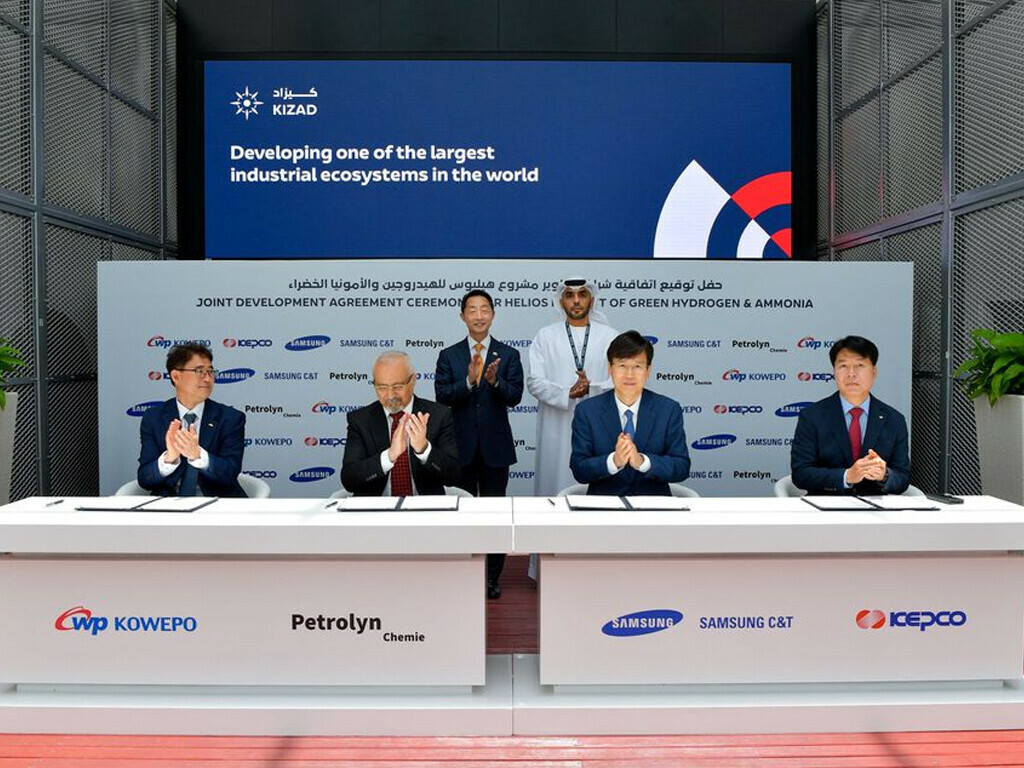The contract for the implementation of the Ammonia production facility project in the Kizad industrial area that is located near the capital of Abu Dhabi has been signed. The contract was signed between three South Korean firms i.e Samsung C&T, an electric utility, Korea Electric Power (KEPCO), and Power supply and trading firm, Korea Western Power, and UAE-based firm, Petrolyn Chemie which is a joint venture between Chemie Tech and Petrolyn.
This comes following the signing of a land lease agreement for the scheme and the completion of the technical study undertaken by ThyssenKrupp AG, a German multinational conglomerate with a focus on industrial engineering and steel production.
Implementation of the Ammonia production facility project in the Kizad industrial area
The Ammonia production facility project in the Kizad industrial area will be constructed in two phases – the first of which entails a 300MW solar PV plant and an estimated 35,000 tonnes-a-year ammonia production capacity. While the final specifications and capacity for phase one are still under discussion, the overall project will include an 800MW solar photovoltaic (PV) plant to power hydrogen-to-ammonia production. The facility is expected to produce over 200,000 tonnes of green ammonia for export annually once completed.
Also Read: World’s largest green hydrogen facility to be constructed in Saudi Arabia
Green hydrogen is considered to be an important fuel for reducing greenhouse gas emissions. Petrolyn stated that the project will enable the participating companies to achieve their Net-Zero vision. The firm further added that they are expected to expand the driver of future growth in the market for green hydrogen through their expanded reproduction of their future business model.
According to the Korea Times, this project is said to be South Korea’s first overseas green hydrogen and ammonia project. While just last month, The Abu Dhabi National Oil Company (ADNOC), the British petroleum and Masdar signed a partnership to study clean hydrogen projects in the country, further proving their commitment to achieving Net-Zero emissions by 2050.

Leave a Reply